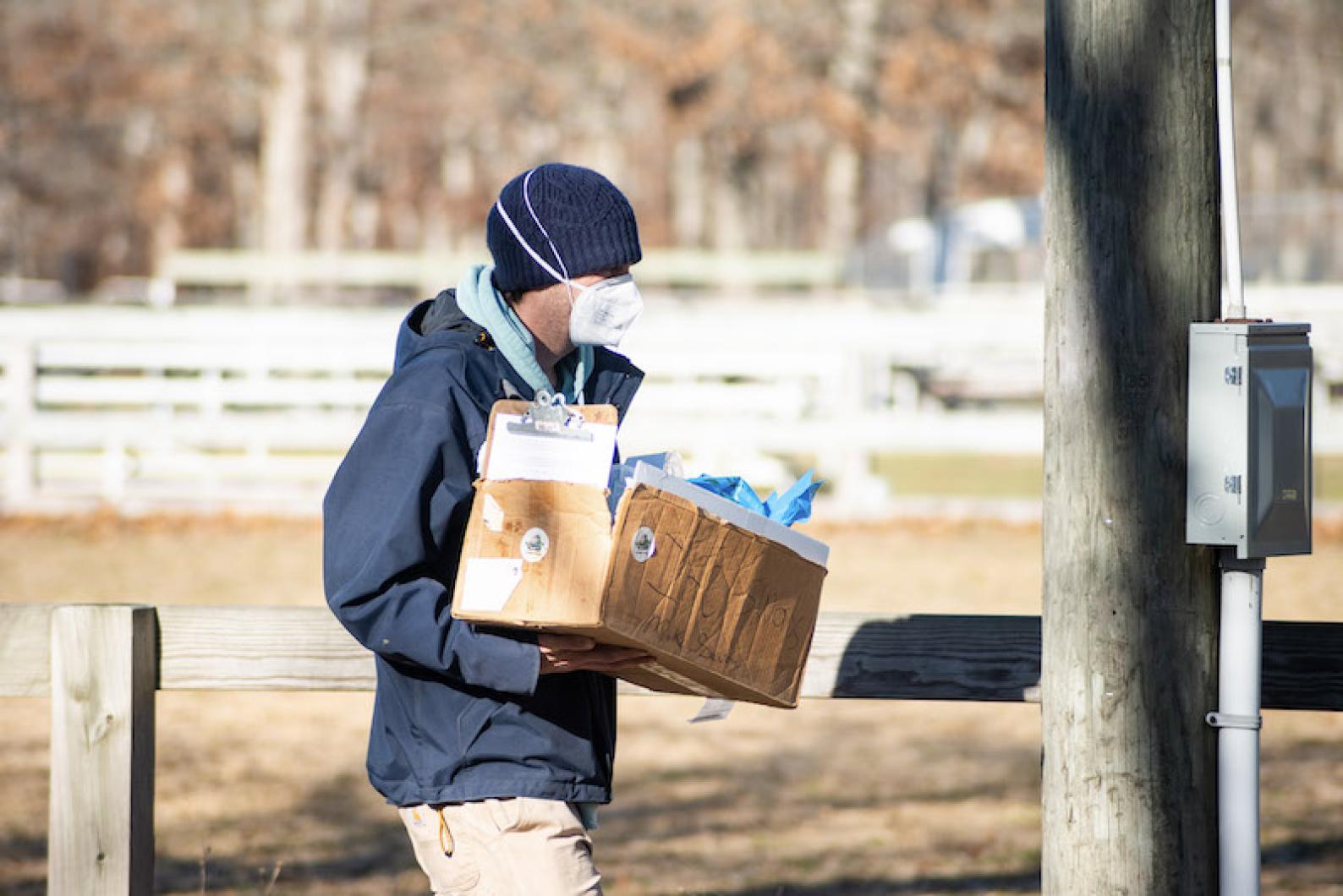New Covid cases on Martha’s Vineyard have leveled off after an uptick over the past two weeks, according to the Island boards of health weekly report.
The boards of health recorded 58 new cases for the week ending March 26, matching the week prior. Cases have risen in recent weeks after hitting a low of two new cases the week of March 5. Case counts still remain far below the post-holiday peak, which saw a height of 486 cases in the first week of the new year.
Of the new cases recorded last week, 40 came from positive over-the-counter tests, and 18 were found with PCR testing. Cases reported last week were largely among people who have been vaccinated; 24 of the reported cases were people who has received a booster shot.
According to the Centers for Disease Control, Martha’s Vineyard is categorized as low risk. But Island boards of health have noted that the CDC data does not take into account OTC test results.
In a joint statement issued late last week, Island health agents urged Islanders to remain vigilant and take precautions to prevent the spread of Covid. They also said rapid test kits and high-quality masks are available in town health departments.
“The Island health agents recommend that while the CDC bases risk levels on positive PCR cases and active hospitalizations, Islanders may also look at the daily numbers of positive over-the-counter (OTC) or rapid home tests in determining their own behaviors towards minimizing exposure,” the statement said in part.
The statement urged those who are immunocompromised to remain cautious, and recommended that Islanders choose indoor events carefully.
“With warmer weather returning, windows should be left open whenever possible, particularly when working or socializing outside of one’s immediate family or close living circle,” the statement said.
The complete text of the statement follows.
•
The Island health agents recommend that while the CDC bases risk levels on positive PCR cases and active hospitalizations, Islanders may also look at the daily numbers of positive over the counter (OTC) or rapid home tests in determining their own behaviors towards minimizing exposure.
Masking remains an important consideration for those heading into crowded venues or situations, or circulating with those outside of their immediate family, particularly if they may have contact with individuals who are vulnerable or at risk of extreme illness. We recommend that people continue choosing indoor social events wisely to prevent potential exposure.
Adequate ventilation helps reduce the exposure to the virus. With warmer weather returning, windows should be left open whenever possible, particularly when working or socializing outside of one’s immediate family or close living circle.
Each board of health office has rapid home tests and high-quality masks available.
Finally, the agents want to remind Islanders that while rapid tests offer a huge advantage in combatting the virus, they have limitations. For example, someone who tests negative should still take precautions such as mask wearing when with a person who is extremely vulnerable. Other considerations include:
• Test if symptoms develop such as sniffles, sore throat, headache, achiness, and fatigue.
• Test two to three days after exposure to a person with Covid.
• A rapid test will only post a positive result if viral loads are high which is why individuals can often first receive a negative OTC test yet receive a positive PCR test some days later.
• Therefore, if an individual has symptoms, but has an OTC negative test result, he or she should still isolate and continue to test or follow up with a PCR test.







Comments
Comment policy »